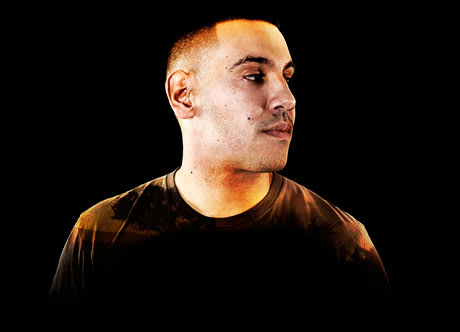It's clear from El Dorado Sunset that Boogat has spent time honing his chops live, in front of audiences bent on dancing. This album understands the importance of keeping things flowing, and from beginning to end, each tune will get folks moving. The production on El Dorado Sunset, courtesy of everyone from Montreal hero Poirier to Munich's electro/tropical/dancehall dons Schlachthofbronx, varies wildly. And this is a very good thing. Influences from multiple corners of the globe (or, more properly, multiple quarters of Montreal) have been injected. The many instrumental contributors, including turntable master Kid Koala, provide an organic sound, but there's still a whack of electronic zip-zap on the album as well. Boogat is a well-known MC in Quebec, but with El Dorado Sunset, he's looking to expand his horizons. (Maisonnette, www.maisonnettemusic.com)
How did you get started?
I started music when I was 15. I listened to the MC Solaar Prose Combat record. I lived in Quebec City and it was the first time I heard something in French about everyday life with everyday life kind of language. In the French world, and maybe in the English world too, there's a way of speaking and then there's a way of writing and doing art. They're not the same levels of language. And [MC Solaar] was the first time, for me, when that level of language was used in an artistic element. This was a revelation and the very next day I started writing raps.
You've done a great deal of work in French.
I've been in some groups and then in 2004, I started a trilogy of French albums, until 2008, when I started working with different people. I started singing with salsa bands, rock acts and all kinds of stuff. Everybody was asking me to rap in Spanish at the shows and I had a lot of fun doing it. In 2010, Poirier asked me to rap in Spanish on a beat. He told me it was going to be released in Argentina on some super-cool electro Cumbia label and I was like, "Yeah, right, man." And that one song ["Kalima Shop Titi"] I did with Poirier had more media coverage than the three albums I did in French [laughs]. So I said, "hey, let's go that way," and I've been doing that since.
Why do you think your Spanish music is more successful?
You can bring it down to language reasons and whatever, but I think that it's a question of energy. The energy that I had when I was in French is completely different than the energy I have when I am in Spanish. Probably, you can do that in French too, you know? But it wouldn't be me. I don't do that kind of stuff in French. Maybe it's the way I learned or the way I write, but my work in French is more cerebral. If you listen to my stuff in French and you don't speak French, oof, you're missing about 50-percent of the song. If you are listening to my stuff in Spanish and you don't speak Spanish, you're not missing a lot. Energy-wise, everything is there and the fun, even if you don't understand it, the fun is still there.
How did you get started?
I started music when I was 15. I listened to the MC Solaar Prose Combat record. I lived in Quebec City and it was the first time I heard something in French about everyday life with everyday life kind of language. In the French world, and maybe in the English world too, there's a way of speaking and then there's a way of writing and doing art. They're not the same levels of language. And [MC Solaar] was the first time, for me, when that level of language was used in an artistic element. This was a revelation and the very next day I started writing raps.
You've done a great deal of work in French.
I've been in some groups and then in 2004, I started a trilogy of French albums, until 2008, when I started working with different people. I started singing with salsa bands, rock acts and all kinds of stuff. Everybody was asking me to rap in Spanish at the shows and I had a lot of fun doing it. In 2010, Poirier asked me to rap in Spanish on a beat. He told me it was going to be released in Argentina on some super-cool electro Cumbia label and I was like, "Yeah, right, man." And that one song ["Kalima Shop Titi"] I did with Poirier had more media coverage than the three albums I did in French [laughs]. So I said, "hey, let's go that way," and I've been doing that since.
Why do you think your Spanish music is more successful?
You can bring it down to language reasons and whatever, but I think that it's a question of energy. The energy that I had when I was in French is completely different than the energy I have when I am in Spanish. Probably, you can do that in French too, you know? But it wouldn't be me. I don't do that kind of stuff in French. Maybe it's the way I learned or the way I write, but my work in French is more cerebral. If you listen to my stuff in French and you don't speak French, oof, you're missing about 50-percent of the song. If you are listening to my stuff in Spanish and you don't speak Spanish, you're not missing a lot. Energy-wise, everything is there and the fun, even if you don't understand it, the fun is still there.
